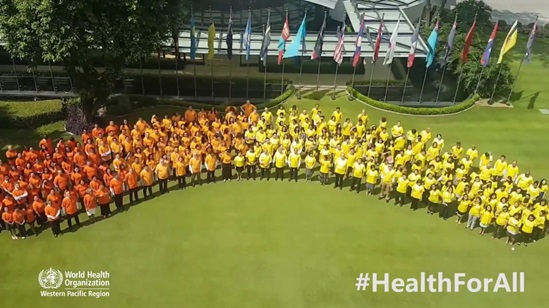Advocating for universal eye health
Towards Universal Eye Health: A Regional Action Plan for the Western Pacific Region (2014–2019) guides countries' efforts to reduce avoidable vision impairment and secure access to low-vision services for those in need. WHO Western Pacific Regional Office actions include the provision of technical guidance and support for advocacy.
WHO strengthens and sustains partnerships and networks to:
- Develop policies, programmes and training to improve access to quality eye health-care services.
- Build country capacity to integrate eye care into primary health care, address equity issues, explore financing options and articulate links to universal health coverage.
- Strengthen advocacy to mobilize political and public support for quality eye health-care services for all.
The vision for the Western Pacific Region is one in which:
- National policies, plans and programmes for eye health are developed or strengthened.
- Eye care sections are included in national lists of essential medicines, diagnostics and health technologies.
- Eye health is integrated into national health plans and budgets.
- A sustainable workforce for the provision of comprehensive eye care services is developed and maintained.

/59748.tmb-300v.png?sfvrsn=9885965b_2)






